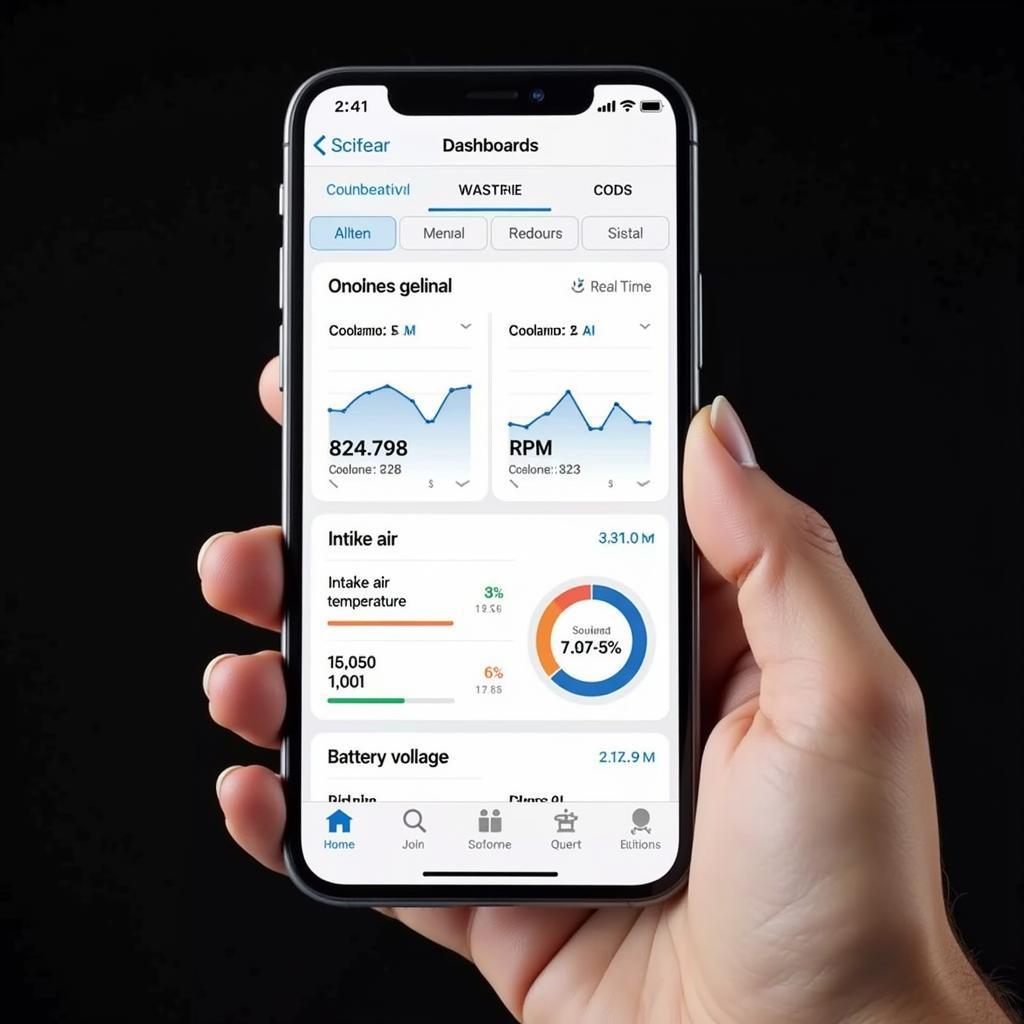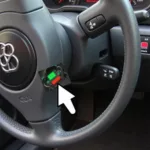Torque OBD2 scanners have become essential tools for car enthusiasts and DIY mechanics alike, providing valuable insights into a vehicle’s health and performance. When it comes to BMWs, known for their sophisticated engineering, using Torque in conjunction with specific plugins unlocks a new level of diagnostic depth. This article delves into the world of Torque OBD2 BMW plugins, exploring their benefits, popular options, and how they can empower you to maintain your ultimate driving machine.
Why Use Torque OBD2 Plugins for Your BMW?
While a standard OBD2 scanner provides access to basic diagnostic trouble codes (DTCs), Torque OBD2 plugins tailored for BMWs offer a much deeper dive into your car’s systems. These plugins act as specialized translators, converting raw data from your BMW’s ECU (Engine Control Unit) into meaningful information you can easily understand. Here’s why this matters:
- Uncover Hidden Data: BMWs often store valuable data that generic OBD2 scanners might miss. These insights can be crucial for diagnosing intermittent issues or understanding long-term performance trends.
- Enhanced Troubleshooting: Plugins translate BMW-specific codes and parameters, allowing you to pinpoint issues more effectively. Instead of just seeing a generic “Engine Coolant Temperature Sensor” error, you might discover it’s specifically related to the intake manifold sensor, saving you time and potential misdiagnoses.
- Monitor Performance Parameters: Want to track your boost pressure, oil temperature, or transmission fluid status? BMW-specific plugins can display these and numerous other real-time parameters, giving you a comprehensive picture of your car’s performance.
- Coding and Customization: Some advanced plugins even allow for coding and customization options. This means you can potentially tweak certain vehicle settings, personalize features, and even unlock hidden functions within your BMW.
Choosing the Right Torque OBD2 BMW Plugin
The world of Torque plugins is vast, so finding the right one for your BMW requires some consideration. Here are key factors to keep in mind:
1. BMW Model and Year: Not all plugins are universally compatible. Ensure the plugin you choose explicitly supports your BMW’s specific model year and engine type.
2. Features and Parameters: Identify the features most important to you. Do you prioritize reading and clearing fault codes, monitoring real-time data, or exploring coding possibilities?
3. User Interface and Reviews: Opt for plugins with intuitive user interfaces and positive user reviews. A well-designed interface makes navigating menus and interpreting data much easier.
4. Cost and Updates: Prices for Torque OBD2 BMW plugins can vary. Consider your budget and whether the plugin offers free updates or requires ongoing subscriptions.
Popular Torque OBD2 Plugins for BMWs
Let’s explore some highly-regarded Torque OBD2 BMW plugins:
-
Carly for BMW: Known for its user-friendliness, Carly offers a comprehensive suite of features, including in-depth diagnostics, service resets, coding capabilities, and battery registration.
-
BimmerCode: Focusing primarily on coding and customization, BimmerCode enables you to unlock hidden features, adjust settings, and personalize your BMW’s behavior.
-
Deep OBD for BMW: If you’re seeking a wide range of data parameters and advanced diagnostic capabilities, Deep OBD is a solid choice. It provides access to a vast number of sensors and live data streams.
-
OBD Fusion: While not exclusively for BMWs, OBD Fusion offers extensive compatibility and a customizable dashboard. It’s a versatile option for accessing and monitoring various vehicle parameters.
Tips for Using Torque OBD2 Plugins with Your BMW
-
Consult Your Owner’s Manual: Before making any coding changes or delving into advanced diagnostics, familiarize yourself with your BMW’s specific systems and potential risks.
-
Start with Basic Diagnostics: When troubleshooting an issue, begin by reading and understanding the fault codes generated by your BMW.
-
Record and Monitor Data: Regularly monitoring key performance parameters can help identify developing problems early on.
-
Seek Expert Assistance: If you encounter complex issues or aren’t comfortable with certain coding procedures, don’t hesitate to consult a qualified BMW mechanic or coding specialist.
Conclusion
Torque OBD2 BMW plugins empower BMW owners to take their diagnostic capabilities to the next level. By unlocking hidden data, enhancing troubleshooting, and offering customization options, these plugins provide a valuable toolset for maintaining and optimizing your driving experience. When choosing a plugin, prioritize compatibility, features, user-friendliness, and your individual needs to make an informed decision. Remember, with the right tools and knowledge, you can unlock the full potential of your ultimate driving machine.


